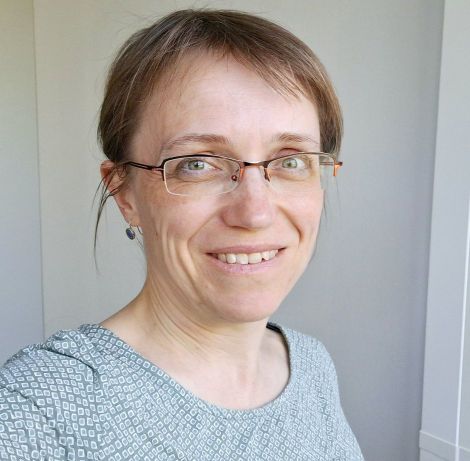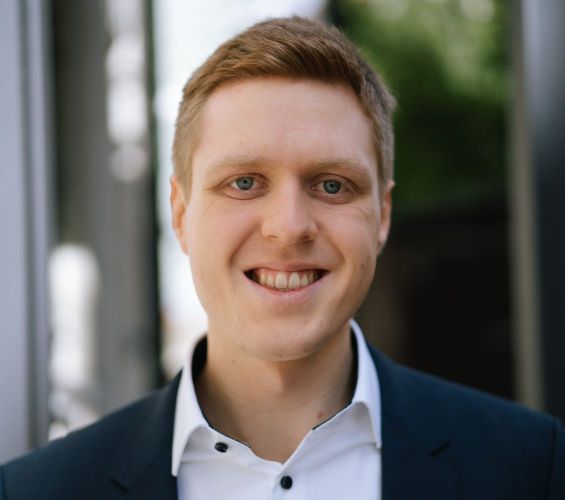
Christine Gläser studied library science in Hamburg (FH) and Berlin (HU). She has been Professor of Information Services, E-Publishing, Metadata and Data Structuring at the Hamburg University of Applied Sciences (HAW) since 2008. For more than 15 years she has been researching and teaching on the subject of learning spaces with a focus on libraries and universities. Current teaching and research focus: Learning spaces in Higher Education, teaching/learning library, library ethnography, research data management, data literacy
Address title: Rethinking Space and Services – Academic Libraries as Learning Hubs
This talk explores the transformation of academic libraries to dynamic learning environments. With the shift from Teaching Libraries to Learning Libraries, higher education institutions are reimagining library spaces to support hybrid learning models, digital and information literacy, and self-directed learning. This talk will examine trends in library-based competence development, the integration of digital and physical learning environments, and the evolving role of academic libraries as service-oriented learning hubs.
Main focus will be on:
- The impact of digitalization on academic libraries and their role in higher education.
- The role of libraries in fostering digital and information literacy skills.
- Strategies for designing learning spaces that integrate physical and digital learning needs.
- Case studies of successful library transformations in higher education.

Sabine Rauchmann is a subject librarian at the Library WISO/BWL, Faculty of Business, Economics and Social Sciences, University of Hamburg, Germany. She teaches a range of workshops aimed at students, doctoral candidates and researchers on the subject of literature searching for academic papers. In 2011, she obtained her doctoral degree in library and information studies from Humboldt-Universität zu Berlin. She is interested in identifying ways to improve the instruction program for learning information literacy skills, combining one-shot instruction sessions with self-learning materials so that it fits seamlessly into the curriculum. She is additionally interested in AI tools for literature searching as well as in the quality of systematic literature reviews and the support needs of researchers in business and management. She has been a member of the Gemeinsame Kommission Informationskompetenz von VDB und dbv (Joint Commission of Information Literacy of VDB and dbv) since 2021.

Nicolas Kusser is a subject librarian for Theology, Classics, and Educational Sciences and Deputy Head of the Medical Branch Library at the University Library of Augsburg, Germany. He studied Theology, Classical Languages, and Pedagogy and completed his postgraduate librarianship training at the Bavarian State Library in Munich in 2023. At the University Library of Augsburg, he coordinates all training activities and information literacy programs for undergraduate and graduate students, continually seeking innovative ways to engage learners in research and enhance their information literacy skills. His current interests focus on exploring the potential of artificial intelligence to improve library services and information literacy offerings. Since 2024, he has been a member of the Gemeinsame Kommission Informationskompetenz (Joint Information Literacy Commission) of the VDB and dbv, as well as the Information Literacy Working Group of the Bavarian Library Network.
Address title: The information literacy landscape in Germany – challenges, best practices, and trends
Germany’s information literacy (IL) landscape across academic and public libraries is characterized by a variety of stakeholders collaborating under a shared commitment to foster critical, reflective, and ethical information practices. In 2001, two studies significantly impacted education in Germany: PISA revealed weaknesses in German students’ performance, while the SteFi study showed knowledge gaps in students’ electronic information use. This led to a rethinking of educational policy and a reorientation of library training. The subsequent developments have faced challenges: Due to the German federal structure, many initiatives started quickly and primarily locally before bundling their activities into regional networks. Integration into curricula and degree courses was negotiated in various ways and through many individual efforts. The use of standards often remained limited. In 2012, the Gemeinsame Kommission Informationskompetenz von dbv und VDB brought libraries’ IL activities together at a federal level. In 2016, it adopted the Referenzrahmen Informationskompetenz and in 2021, it translated the Framework for Information Literacy. While the initial focus on IL in library education was modest, it has now become part of the curriculum in all library and information science degree programs. Fundamental research remains marginal, with publications limited to field reports and handbooks. Even though IL and the teaching library is considered a fundamental task in German libraries today, a study conducted in 2023 revealed a pronounced heterogeneity in the governance structures of IL instruction in library organizations. Despite challenges, the community developed best practices, including centralized IL Statistics on IL training in German libraries. Librarians exchange information on issues and trends annually at the Information Literacy Round Table. Lighthouse projects are recognized through the annual Best Practice Competition. Current global issues and trends such as fake news and fake science, digital and AI literacy, data protection, new teaching formats and gamification are also incorporated into the training offered by German libraries. In the future, exchange within and beyond the IL community and cooperation between public and academic libraries will play a major role in establishing libraries as partners of all educational institutions. Our contribution based on selected papers, positions, IL statistics and illustrative examples across German libraries provides a meta-perspective of how IL is organized and coordinated in Germany, highlighting key topics, challenges and trends, best practices, and future directions. The aim is to show, how the diversity of activities in all German federal states are an opportunity to open up new activities and effectively anchor IL in the digital age.
